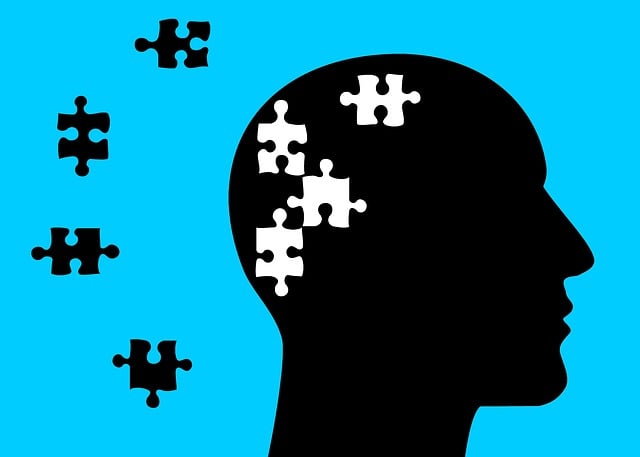Highlands Ranch Relationship Issues Therapy offers comprehensive coping skills training, combining mood management, self-assurance exercises, wellness practices, CBT, and empathy-building strategies. This tailored approach, beginning with detailed assessments and risk management planning, equips clients with resilience to navigate relationship challenges, improve communication, and enhance mental wellness through effective stress management and self-care routines. Professional guidance and social support are key to long-term coping strategy development, fostering emotional healing and reducing burnout.
In today’s fast-paced world, effective coping skills are essential for navigating life’s challenges. For individuals facing Highlands Ranch relationship issues, therapy becomes a powerful tool for personal growth. This article explores the development of coping skills, delving into their significance in therapy and offering practical strategies. We discuss identifying individual needs specific to Highlands Ranch relationship dynamics, incorporating cognitive-behavioral techniques, and leveraging support systems for long-term resilience.
- Understanding Coping Skills and Their Significance in Therapy
- Identifying Individual Needs: Assessing Highlands Ranch Relationship Issues
- Practical Strategies for Building Effective Coping Mechanisms
- Incorporating Cognitive-Behavioral Techniques in Coping Skills Development
- The Role of Support Systems and Professional Guidance in Long-Term Coping
Understanding Coping Skills and Their Significance in Therapy

Coping skills are essential tools that individuals use to navigate life’s challenges and maintain emotional well-being. In the context of Highlands Ranch Relationship Issues Therapy, understanding these skills is paramount. They serve as a person’s psychological toolbox, enabling them to manage stress, regulate emotions, and overcome obstacles in healthy ways. By learning effective coping strategies, individuals can enhance their resilience and overall mental health.
During therapy sessions, professionals often focus on teaching clients various coping techniques tailored to their unique needs. This might include mood management strategies to help regulate emotional states, confidence-boosting exercises to foster self-assurance, and self-care practices to promote a sense of well-being. These skills are invaluable, especially when addressing relationship issues, as they empower individuals to create positive changes in their lives and build healthier connections with others.
Identifying Individual Needs: Assessing Highlands Ranch Relationship Issues

In Highlands Ranch, addressing relationship issues often requires a tailored approach to meet individual needs. The first step in coping skills development is comprehensive assessment, where therapists delve into clients’ unique circumstances, past experiences, and current challenges. This involves understanding the dynamics of personal relationships, including family ties, friendships, and romantic partnerships, as these play a pivotal role in mental health and well-being.
Identifying specific issues within Highlands Ranch relationship dynamics can be complex. Mental Health Policy Analysis and Advocacy techniques help professionals navigate these complexities, offering insights into systemic factors that may contribute to interpersonal problems. By applying Mind Over Matter Principles, therapists guide clients in managing emotions, improving communication, and fostering healthier connections, thereby enhancing their overall resilience. Additionally, Risk Management Planning for Mental Health Professionals is crucial in handling sensitive relationship issues, ensuring both the safety of clients and practitioners during the therapeutic process.
Practical Strategies for Building Effective Coping Mechanisms

In the face of challenges or Highlands Ranch Relationship Issues, developing robust coping strategies is essential for maintaining mental wellness. One effective approach involves integrating practical techniques that promote emotional regulation and healthy stress management. For instance, mindfulness practices such as meditation encourage individuals to stay present and non-judgmentally aware of their thoughts and feelings, fostering a sense of calm during turbulent times. Additionally, engaging in physical activities like exercise or yoga can serve as powerful outlets for releasing tension and improving overall mood.
Beyond individual efforts, Empathy Building Strategies play a significant role in coping skill development, particularly within the context of therapy settings. Therapists who demonstrate cultural sensitivity in mental healthcare practice create safe spaces where clients feel understood and validated. This empathetic approach encourages open communication, allowing individuals to explore their emotions freely and develop personalized coping mechanisms tailored to their unique experiences and backgrounds, ultimately enhancing their ability to navigate life’s challenges effectively.
Incorporating Cognitive-Behavioral Techniques in Coping Skills Development

Incorporating Cognitive-Behavioral Techniques (CBT) is a powerful approach within Highlands Ranch Relationship Issues Therapy to enhance coping skills development. CBT focuses on identifying and challenging negative thought patterns, replacing them with more realistic and adaptive ones, thereby reducing emotional distress. By teaching individuals to recognize triggers and modify their responses, this technique equips them with effective tools to navigate life’s challenges. For instance, a person struggling with anxiety can learn to reframe catastrophic thoughts, fostering a sense of control and promoting healthier coping mechanisms.
Integrating CBT into therapy facilitates the growth of self-care routine development for better mental health. It empowers individuals to proactively manage their emotional well-being, which is especially beneficial in preventing burnout. Moreover, trauma support services can greatly benefit from CBT, helping clients process and overcome traumatic experiences by reframing them as manageable events. This cognitive shift contributes to improved resilience, enabling individuals to cope with stress and adversity more effectively.
The Role of Support Systems and Professional Guidance in Long-Term Coping

Support systems and professional guidance play a pivotal role in fostering effective long-term coping skills. In the context of Highlands Ranch Relationship Issues Therapy, individuals often find solace in having a reliable network of friends, family, or support groups that offer empathy, understanding, and encouragement. This social support acts as a buffer against stress and promotes resilience, enabling individuals to navigate challenging situations more effectively.
Moreover, professional guidance from therapists or counselors is invaluable for addressing underlying issues and cultivating healthier coping mechanisms. Through evidence-based practices tailored to individual needs, professionals can assist clients in developing Burnout Prevention Strategies for Healthcare Providers, while also contributing to Mental Illness Stigma Reduction Efforts. The emotional healing processes facilitated by these professionals empower individuals to manage their mental health effectively, ensuring they have the tools needed to cope with life’s challenges over the long term.
Coping skills development is a pivotal aspect of therapy, especially when addressing complex issues like those encountered in Highlands Ranch relationship therapy. By understanding and implementing practical strategies, individuals can build effective coping mechanisms that enhance their well-being. Incorporating cognitive-behavioral techniques, leveraging support systems, and seeking professional guidance are essential components for long-term success in navigating and overcoming challenges related to Highlands Ranch relationship issues therapy.








